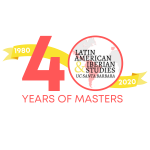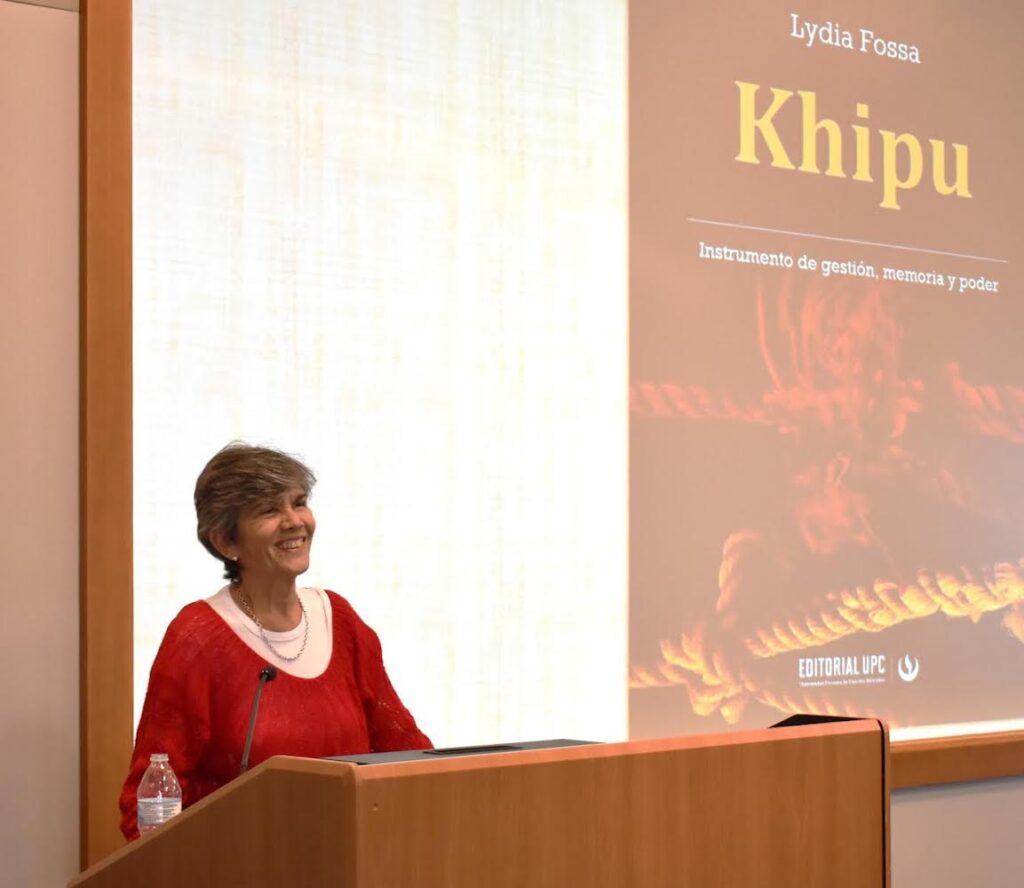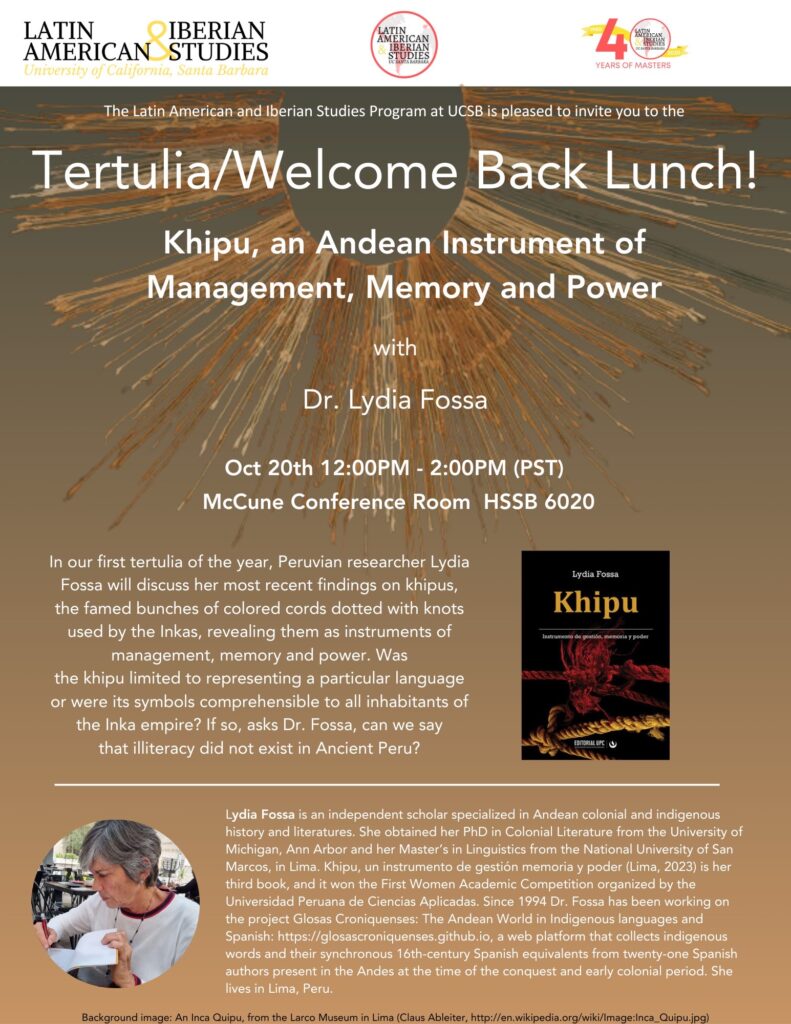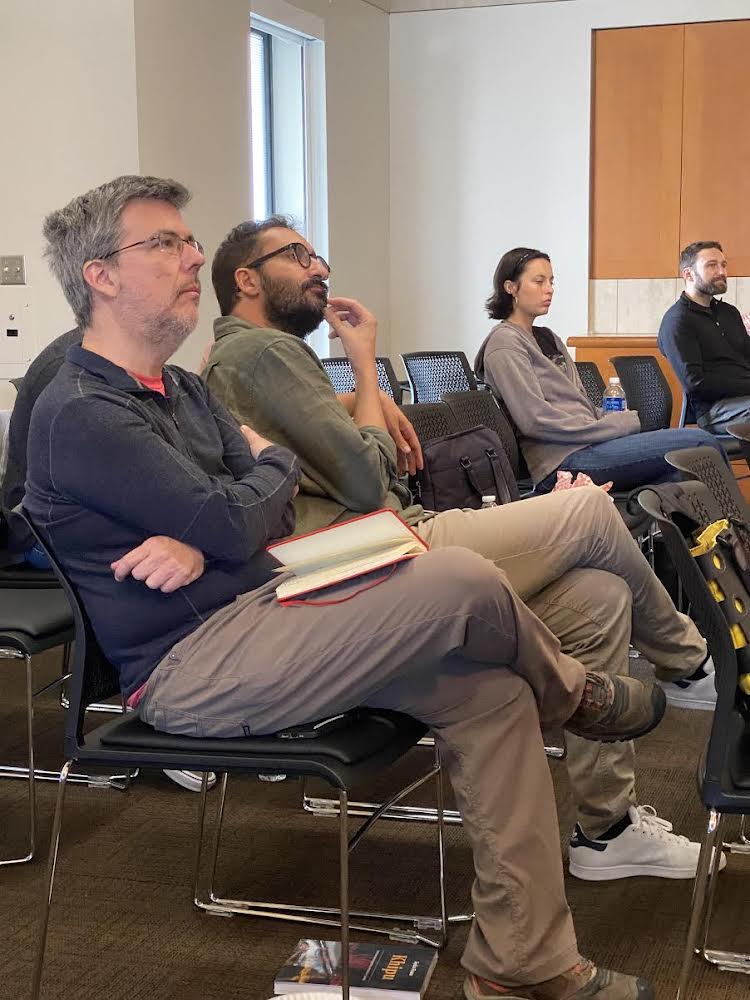Our first tertulia & lunch of the year took place on October 20 and featured Lydia Fossa, an independent scholar specialized in Andean colonial and indigenous history and literatures. Dr. Fossa obtained her PhD in Colonial Literature from the University of Michigan, Ann Arbor; her Master’s in Linguistics from the National University of San Marcos, in Lima, and a B.A. in Communications from the Universidad de Lima. Khipu, un instrumento de gestión memoria y poder (Lima, 2023) is her third book, and it won the First Women Academic Competition organized by the Universidad Peruana de Ciencias Aplicadas. Her articles have appeared in journals such as Ethnohistory, Recial, Estudios Atacameños, and Histórica. In 1994 she founded Glosas Croniquenses: The Andean World in Indigenous languages and Spanish, a web portal that collects indigenous words and their synchronous 16th-century Spanish equivalents from Spanish authors present in the Andes at the time of the Spanish conquest and early colonial period. She lives in Lima, Peru.
In her book talk, Dr. Fossa presented her research showing khipu as an instrument of management, memory, and power in the Inca Empire. Drawing on her extensive archival research, Fossa showed how khipu were used as “dispatches” dating back to the 16th century. Fossa reviewed the construction of khipu, showing that the strings were made from animal and plant fibers and then colored using natural dyes. She then discussed examples of khipu’s function in cultic celebrations, noting that the colors of the strings and number of knots and their positions conveyed different meanings. Analyzing various historic examples of khipu, Fossa has studied them as a “syncretic code”—fiber code, color code, sequential code, hanging code, and codes modulated by the main cord. Khipu, Fossa argued it is a discourse, operating at a superficial level (cord anchoring, knot making, color sequencing, appendices) and a deep level (fiber, colors, thread manipulation). “The lack of interest in the 16th and following centuries in knowing how the khipu worked was a strategy to disqualify the indigenous registration and communication system,” Fossa concluded. “Spaniards needed to continue justifying invasion as a means, and domination as a social practice toward indigenous societies for not having the technique of alphabetic writing.” This, she argued, is why we have too little knowledge about the function of khipu in indigenous societies. Fosse’s groundbreaking research reveals the importance of Khipu as a Peruvian, Andean, and American heritage object with extraordinary complexity.
The talk was followed by a lively Q & A session. You can use this link code to purchase Dr. Fossa’s book with a 25% discount.






